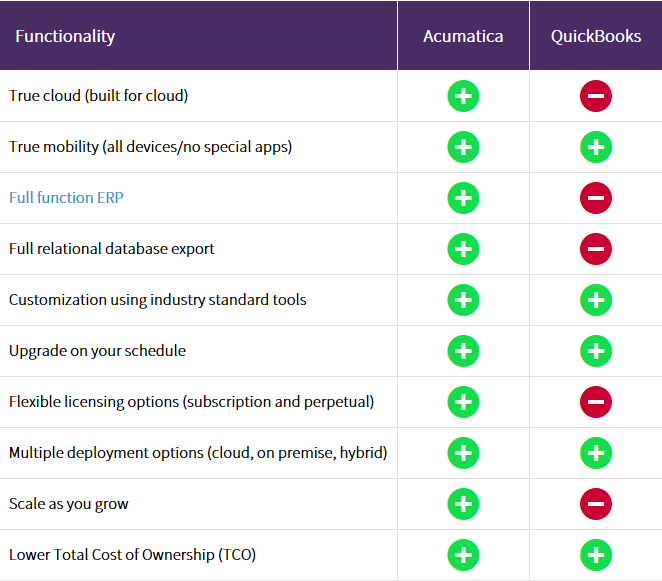Acumatica vs. QuickBooks—choosing Cloud ERP to move your business forward
Posted on: November 6, 2017 | By: Craig Thompson | Acumatica
During the developing stages of business development many choose to implement QuickBooks. This package is a simple accounting software, primarily for orders and sales. The disadvantage of using a non-inclusive solution like QuickBooks is that it isn’t built for inventory management. Additionally, QuickBooks has very limited ability to manage and track supply chain and production. This becomes a heavy burden as your business begins to grow and processes become more complex. By upgrading to a true cloud software package like Acumatica, your business has the option to evolve. Let’s consider the significant differentiators between the two software packages!

Scalability
Choosing Acumatica allows you to scale as your company grows meaning this solution can accommodate multiple companies and currencies as once. A disadvantage to QuickBooks is that you are limited to a maximum of 30 users at once. Although, QuickBooks is built to handle multiple currencies it is not built to handle multiple companies.
Database Exports
By using a proprietary database QuickBooks does not include a true export function. That is because it requires a third-party utility to access the database. Because Acumatica is a fully functional ERP solution it uses more robust databases to import and export data.
Cloud Computing
This is perhaps the most important difference between QuickBooks and Acumatica. Acumatica ERP works on premises or in the cloud without additional equipment. Although, QuickBooks can be accessed through the internet it is known that the product is not true a cloud based package.
Is QuickBooks straining to keep pace with your business? Why not consider the cost-effective ERP solution—Acumatica! If your business is contemplating the benefits of implementing a cloud-based ERP solution contact, Logan Consulting, for your free consultation now!
